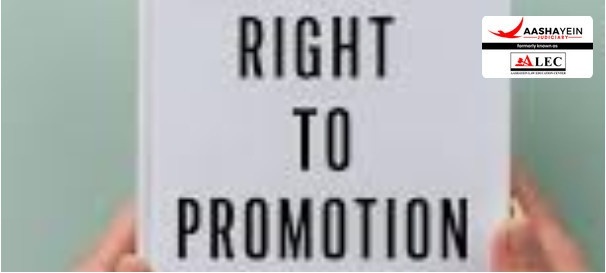Justice Abhay S. Oka of the Supreme Court delivered a thought-provoking on the growing concerns about frivolous complaints, media trials, frequent adjournments, and their combined impact on the judicial process.
The Danger of Frivolous Complaints
Justice Oka pointed out a disturbing trend he has observed over the last decade, where unscrupulous litigants file complaints against judges with the intent to malign their reputations. He expressed grave concern over how these complaints, even when frivolous, are often leaked and go viral on social media. He noted that it was not just about the filing of complaints but also the widespread circulation of these unsubstantiated claims, which harms the judicial officer’s reputation without due process.
He further emphasized that judges facing such attacks, especially when they are frequent, may find it difficult to maintain their impartiality and operate without fear or favor. The fear of being unjustly criticized could affect their conduct in court, thereby compromising the fairness of trials.
Media Trials: The Role of Speculation and Pressure
One of the most alarming aspects discussed by Justice Oka was the issue of media trials, which often undermine the perception of justice. He underscored that it is the exclusive responsibility of the judge to determine whether an accused is guilty based on legally admissible evidence and beyond a reasonable doubt. Media speculation and commentary on pending cases can distort public opinion and create undue pressure on the judiciary.
The judge stressed that any criticism of judicial decisions should be constructive and rooted in legal reasoning. “Criticism of a judge should be based on constructive criticism based on legal grounds, that protection must be given to judges. If we don’t give that protection, judges may work under pressure,” he warned. The rising trend of media trials is eroding the reliability of the judicial system, which must be protected from undue external influences.
Justice Oka also referred to the role of politicians, particularly in high-profile criminal cases, where public statements like those calling for the death penalty for accused individuals during an ongoing investigation can pressure judicial officers. He condemned the use of populist rhetoric by politicians, reminding everyone that decisions about sentencing, including the death penalty, lie solely within the judiciary’s purview. He stated, “Society must understand that judges must decide as per law, whether the death penalty be given is for the judge to decide, the politicians cannot say whether death penalty be imposed or not.”
You can also read the latest judgment by visiting [Latest Judgment].
For more information, visit [Aashayein Enquiry Section]
The Impact of Adjournments and Delays
Another pressing issue highlighted by Justice Oka was the persistent problem of adjournments, which contribute to the growing backlog of cases. Justice Oka noted that it is often the lawyers who seek adjournments, and this, in turn, causes delays that stretch out cases for years. He expressed concern over how local bar associations sometimes protest when judges strictly enforce timelines for hearings, making it harder for cases to progress swiftly. He argued, “More responsibility has to be shared by members of the bar because it is the members of the bar who apply for adjournment.”
He further criticized the unproductive tradition of boycotting courts, which negatively impacts litigants’ hopes and expectations for timely justice. Losing even a single day of work in court, he said, could result in hundreds of litigants’ cases being delayed. Justice Oka described such actions as “nothing but a crime,” especially when these delays exacerbate the existing backlog of cases.
The Need for Judicial Reforms and Prioritization
In his speech, Justice Oka suggested that there is a need for a more structured policy to decide which cases should be given priority in hearings, especially in the Supreme Court. “Several litigants come to SC who can afford to come to the higher court, while some are waiting in queues as they cannot afford,” he observed. He acknowledged that many believe that the court prioritizes the wealthy, which further damages its reputation. To remedy this, he advocated for a policy framework to ensure that those who cannot afford to access higher courts receive equal attention.
Judicial Independence and the Role of the Bar
Justice Oka also spoke about the responsibility of the legal fraternity in maintaining judicial independence. He recalled how bar associations in the Bombay High Court had passed strong resolutions in the past to ensure that all lawyers take a firm stand for judicial independence. He emphasized the need for bar associations to focus on institutional issues and advocate for the protection of the judiciary’s independence.
Addressing Post-Retirement Positions and the Collegium System
Addressing the issue of judges holding post-retirement positions, Justice Oka pointed out that laws currently ensure that retired judges occupy tribunals, but questioned whether there are sufficient mechanisms to ensure these appointments are made transparently. On the subject of the Collegium System for judicial appointments, Justice Oka refrained from offering a detailed response, given his involvement in the process, but suggested that any system meant to replace the Collegium must be demonstrably better.
Conclusion:
Justice Oka’s remarks encapsulated the urgent need for reform in the Indian judicial system. From ensuring the protection of judicial officers from frivolous complaints and external pressures to addressing the systemic issues of adjournments and media trials, the judiciary must uphold its independence and work to restore public trust. His address serves as a call to both members of the legal profession and the public to recognize the importance of maintaining a fair, transparent, and accountable judicial system.
As he rightly pointed out, “If we don’t give that protection, judges may work under pressure.” This reminder underscores the delicate balance between upholding the rule of law and protecting the judicial system from external pressures, a message that should resonate deeply in today’s ever-volatile legal landscape.

